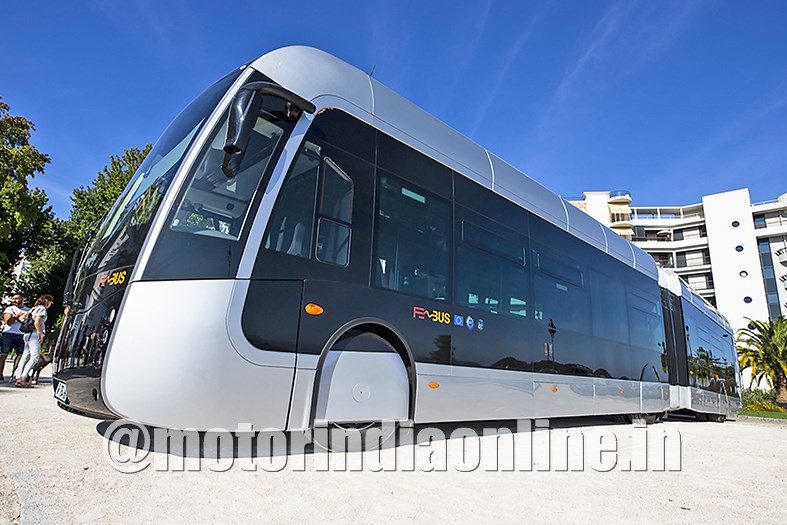This new service is part of the city public transport network and part of its global overhaul. It was opened to the public on December 17, 2019. This major milestone concludes a key year for electro-mobility for Keolis, confirming its position as a leading operator in terms of alternative energies to diesel
A long-standing partner of Pau transport operator SPL STAP (Societe de Transport de L’Agglomeration Paloise), in charge of operating Pau Bearn Pyrenees Mobilites’ city public transport network for 20 years, Keolis has worked on the launch of the 100% hydrogen BRT service called Febus, that runs in the centre of Pau. This launch represents the culmination of the overhaul of the city transport network IDELIS, aimed at modernising and developing the transport offer to increase the region’s appeal. Keolis is providing technical assistance for the operation of the eight Febus hydrogen BRTs. These vehicles operate on the route between François Mitterand Hospital in the north of the inter-communal area, and Pau train station, in the south.
Built by the Belgian manufacturer Van Hool, these vehicles produce their electricity on board, using a hydrogen fuel cell. The hydrogen used to supply energy to the vehicles is produced in the station built near the IDELIS bus depot in Pau. A key asset of hydrogen power, these vehicles emit no pollution – be it noise or atmospheric pollution through greenhouse gas emissions – as the engine emissions are composed solely of water. With their range of 240 km per day, these BRTs do not need to be recharged while in service. Recharging takes place at night in the station.
Accessible to people with reduced mobility, these 18-metre vehicles have a 145-person capacity and include 32 leather-covered seats and large bay windows that provide passengers with plenty of light. The line’s 14 stations are equipped with complete real-time passenger information, free Wi-Fi connection, automatic ticket vending machines and video protection cameras. Commissioning this fleet of eight vehicles required the construction of a hydrogen station, inaugurated on September 19, 2019, as well as a maintenance workshop adapted to using hydrogen. One hundred employees were trained in this new rolling stock – 50 for driving and 50 for maintenance and control.
Across the world, Keolis is committed to supporting public transport authorities and passengers to promote carbon-free, more sustainable mobility. Recent contracts won by Keolis and recent commercial launches have accelerated its contribution to the energy transition. In France, in addition to the hydrogen BRT service in Pau, Keolis launched the fully electric BRT lines in Amiens in May 2019 and Bayonne-Biarritz-Anglet in September 2019 as well as the Caen steel-wheeled tram in July 2019. To illustrate Keolis’ determination to adopt a more environmentally-friendly approach, in November 2019, the Keolis Group organised the ‘Keolis New Energies Tour’ in six French cities.
Keolis’ alternative energy experts presented the public transport authorities with their vision of different ‘clean’ energies such as compressed natural gas, electric, hydrogen and existing rolling stock to provide food for thought on the challenges of climate change in their region. In Europe, Keolis is also in charge of numerous electric mobility projects. In the Netherlands, in September 2019, Keolis won the largest electric bus contract in its history with 300 vehicles operating in the provinces of Overijssel, Flevoland and Gelderland from December 2020 onwards. In Norway, in June 2019, the Keolis Group won the completely carbon-free bus network for the city of Bergen, beginning in December 2020.
